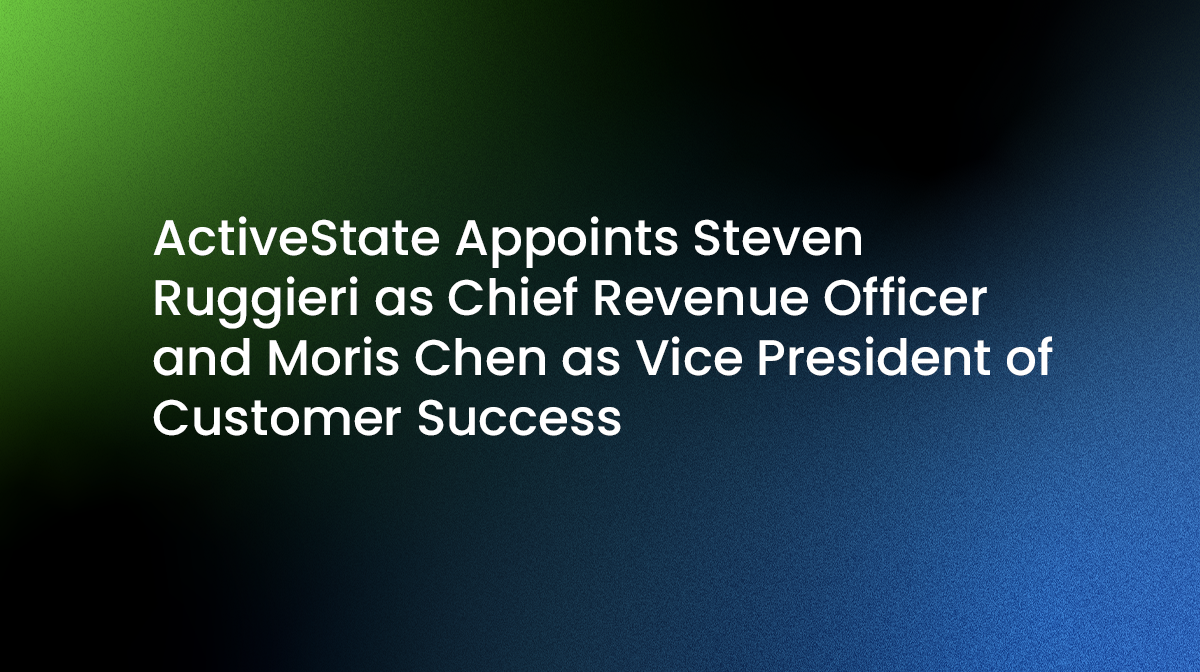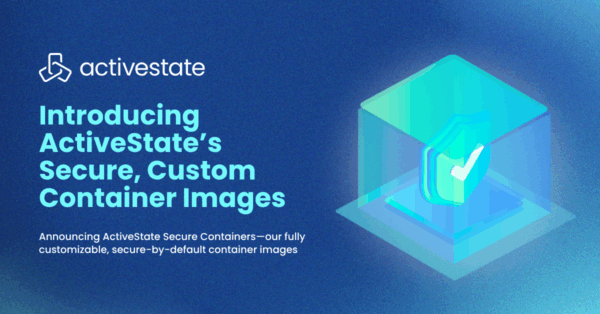Company Adds Seasoned Experts with Track Record of Driving Growth, Innovation, and Customer Satisfaction in the Software and Open Source markets.
VANCOUVER, BC – April 10, 2024 – ActiveState, a leader in preventing software supply chain attacks, announced today that it has named Steven Ruggieri as Chief Revenue Officer and Moris Chen as Vice President of Customer Success. Each brings more than a decade of experience building and scaling high performing, mission-driven organizations. They will both report to Stephen Baker, Chief Executive Officer at ActiveState.
“Both Steven and Moris are exceptional leaders with proven technological savvy and unique insight into what it takes to build and drive industry leading solutions that meet the needs of our customers,” said Stephen Baker, President and Chief Executive Officer at ActiveState. “The addition of Steven and Moris to our organization will be instrumental in driving our vision as ActiveState continues its next phase of growth.”
“I am incredibly excited about the opportunity to take ActiveState’s industry leading platform and deliver it to developers that want to modernize their enterprise applications while securing their software supply chain,” said Steven. “The opportunity to lead our revenue strategy and drive growth in such a dynamic and innovative company is both thrilling and humbling. I look forward to collaborating with our exceptional team to achieve new heights of success.”
Ruggieri brings to ActiveState more than 15 years of experience in leading dynamic sales organizations across software markets and helping customers work with Python. In this role, he will work closely with the company’s executive leadership team to define a successful go-to-market program for ActiveState. Most recently, Ruggieri was the Vice President of Global Sales at Spire, where he was responsible for leading, planning and executing the company’s sales organization. Steven’s career experience spans high profile positions at large public corporations and venture-backed startups, such as RapidMiner and TIBCO.
“Many businesses today are grappling with securing their software supply chain,” said Moris Chen. “I believe that enterprises need to secure their software supply chain and ActiveState’s platform is uniquely positioned to help customers navigate that complexity and future-proof their codebases. The opportunity to lead and build ActiveState’s customer success organization as the industry evolves is very exciting.”
Chen brings to ActiveState more than 10 years of experience in building and leading customer success and professional services teams. In this role, he will work in close partnership with Baker and ActiveState’s executive leadership team to develop and implement programs and initiatives that drive customer satisfaction, renewals, and expansions. Most recently Motis was the Vice President of Customer Success & Business Development at Treadly, where he was responsible for developing and leading a world-class customer success and business development organization. Moris’ career experience includes leadership positions at startups and enterprise companies such as Treadly, JFrog, and Marketo.
The addition of our new Chief Revenue Officer and Vice President of Customer Success marks a significant step forward in ActiveState’s commitment to innovation and customer-centric growth. By prioritizing initiatives that encourage customers to get current and stay current, ActiveState is not only ensuring the longevity of their codebases but also future-proofing and protecting them from vulnerabilities and cyber attacks.
To learn more about how ActiveState can help your enterprise securely integrate open source, visit https://www.activestate.com/get-current-stay-current/.







